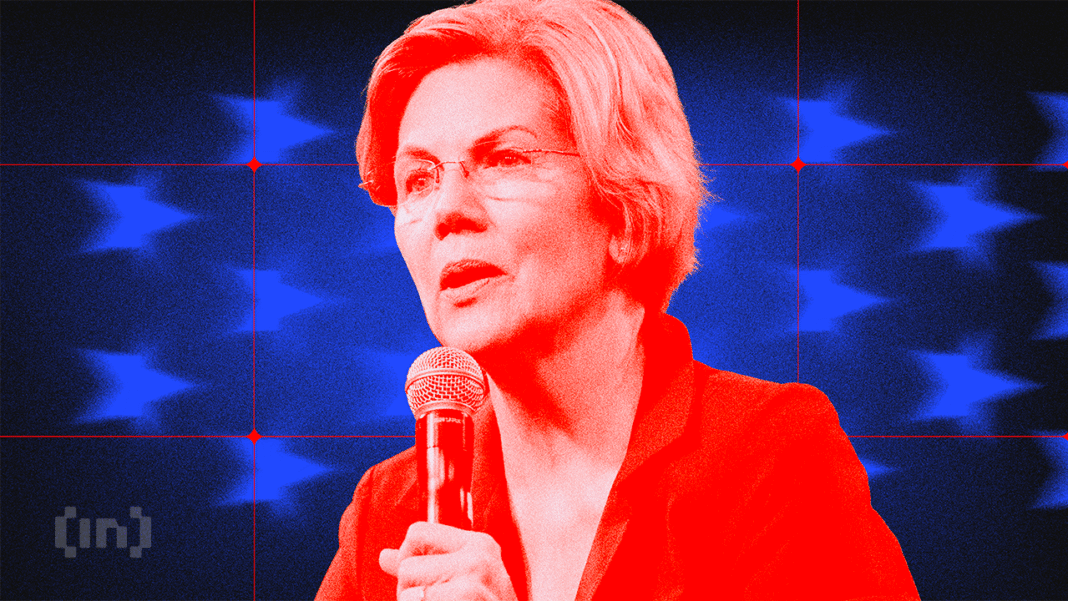Senator Elizabeth Warren has raised major national security concerns and warned of widespread corruption regarding two multibillion-dollar deals.
A New York Times investigation exposed these deals, which benefit US President Donald Trump and other high-ranking White House officials, as well as a prominent politician in the United Arab Emirates.
Overlapping Deals Lead to National Security Concerns
This week, a series of deals between the White House and a powerful Emirati politician with extensive political ties came to light.
The New York Times reported on a confluence of two agreements. One deal gave the UAE access to a significant supply of AI chips, while the other gave Trump’s WLFI a $2 billion deposit.
Though the reporters behind the investigation clarified that no evidence existed that one deal was explicitly offered in return for the others, they nonetheless raised questions of conflict of interest.
In a press release sent to BeInCrypto from Warren’s press office, Warren raised significant national security concerns and warned of widespread corruption.
“A foreign power, in essence, has co-opted the foreign policy of the United States through backroom crypto deals that hand over access to sensitive US technology while enriching the families of the President and senior officials,” Warren said. “To call this corruption does not do justice to the scale of harm that these deals will do to our national security.”
The stakes increase given the fierce competition between China and the US in the global race to dominate artificial intelligence production.
The UAE’s AI Ambitions
Much of the AI race is heavily dependent on specialized chips. This hardware provides the immense computational power needed to develop large language models.
The Biden administration previously went to great lengths to curb China’s access to these AI chips. This included the passage of legislation like the CHIPS Act and strict export controls. These measures effectively barred the sale of high-end, advanced semiconductors to China.
The UAE, a technological powerhouse, saw the United States as a key partner for acquiring the necessary advanced computer chips. Since American companies like Nvidia design most of the world’s most powerful AI chips, a prominent Emirati official, Sheikh Tahnoon bin Zayed Al Nahyan, sought to secure a deal with the US, according to The New York Times.
Sheikh Tahnoon holds several key positions, including chairman of the technology firm G42, the UAE’s national security adviser, and manager of a substantial $1.5 trillion in sovereign wealth. He is also part of Abu Dhabi’s ruling family and the brother of the UAE President.
The Biden administration, concerned with G42’s partnerships, advised Sheikh Tahnoon to choose between the US and China. Ultimately, it approved a limited deal between the UAE and Microsoft for a small number of high-powered chips under strict rules.
That inflexible stance would soon change once Trump took office.
Blurring Lines of Business and Policy
Steve Witkoff, serving as a US envoy to the Middle East, persistently championed a chips agreement with the UAE. His efforts, alongside those of David Sacks, Trump’s “AI and crypto czar,” led to a new deal that dramatically increased the number of chips G42 could acquire.
According to the Times, a new proposal revealed the number of chips sent to the UAE would increase to 500,000. Of that amount, one-fifth would be slated for G42. Sacks advocated for this policy, arguing that it would strengthen America’s technological leadership by supplying allies.
These negotiations took place at the same time a separate, but related, financial transaction was being finalized.
Trump’s family cryptocurrency firm, World Liberty Financial—co-founded by Steve Witkoff—received a massive $2 billion investment from MGX. Sheikh Tahnoon also chairs this AI investment firm. This deal created a direct financial link between the Trump family and Sheikh Tahnoon.
The post Senator Warren Comments On Trump’s Crypto and AI Backroom Deals With an Abu Dhabi Emir appeared first on BeInCrypto.


